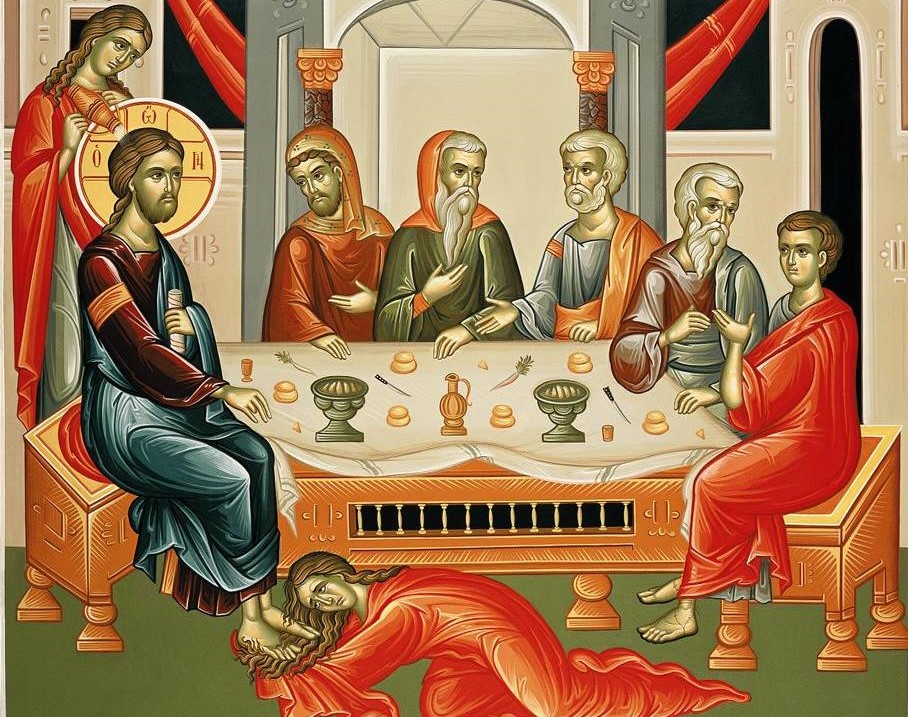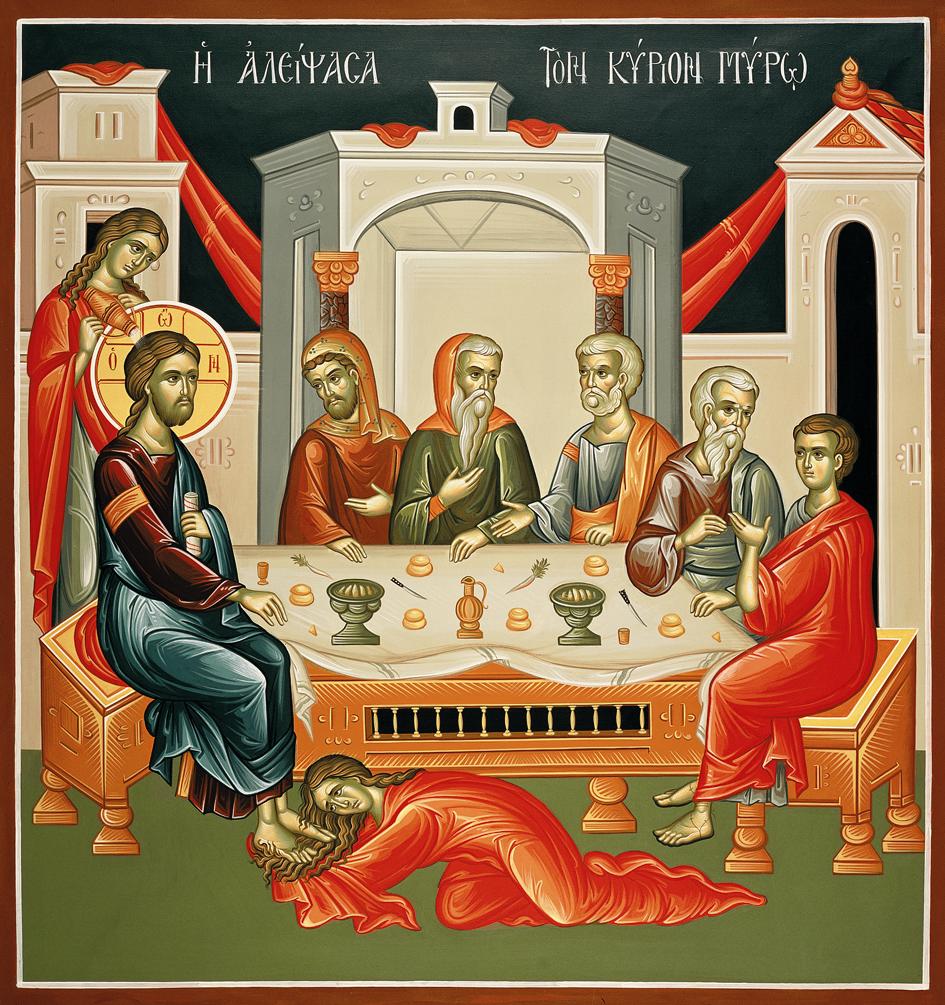Great and Holy Wednesday


Holy Wednesday
On Holy Wednesday the Church invites the faithful to focus their attention on two figures: the sinful woman who anointed the head of Jesus shortly before the passion (Matthew 26:6-13), and Judas, the disciple who betrayed the Lord. The former acknowledged Jesus as Lord, while the latter severed himself from the Master. The one was set free, while the other became a slave. The one inherited the kingdom, while the other fell into perdition. These two people bring before us concerns and issues related to freedom, sin, hell and repentance.
The repentance of the sinful harlot is contrasted with the tragic fall of the chosen disciple. The Triodion make is clear that Judas perished, not simply because he betrayed his Master, but because, having fallen into the sin of betrayal, he then refused to believe in the possibility of forgiveness. If we deplore the actions of Judas, we do so not with vindictive self-righteousness but conscious always of our own guilt. In general, all the passages in the Triodion that seem to be directed against the Jews should be understood in this same way. When the Triodion denounces those who rejected Christ and delivered Him to death, we recognize that these words apply not only to others, but to ourselves: for have we not betrayed the Savior many times in our hearts and crucified Him anew?
I have transgressed more than the harlot, O loving Lord, yet never have I offered You my flowing tears. But in silence I fall down before You and with love I kiss Your most pure feet, beseeching You as Master to grant me remission of sins; and I cry to You, O Savior: Deliver me from the filth of my works.
While the sinful woman brought oil of myrrh, the disciple came to an agreement with the transgressors. She rejoiced to pour out what was very precious, he made haste to sell the One who is above all price. She acknowledged Christ as Lord, he severed himself from the Master. She was set free, but Judas became the slave of the enemy. Grievous was his lack of love. Great was her repentance. Grant such repentance also unto me, O Savior who has suffered for our sake, and save us.
On Great and Holy Wednesday, the hymns of the Bridegroom Service remind us of the sinful woman who poured precious ointment on Christ’s head at Simon the leper’s house (Mt. 26:7).
The disciples complained about the wasteful extravagance, for the myrrh could have been sold and the money given to the poor. On this same day Judas agreed to betray the Lord for thirty pieces of silver. Because the betrayal took place on Wednesday, Orthodox Christians fast on most Wednesdays during the year.
On the other hand, the Saviour declared that the woman’s actions would be remembered wherever the Gospel is preached (Mt. 26:13), for she had anointed Him in preparation for His burial (Mt. 26:12).
Mt. 26: 6–16
When Jesus was at Bethany in the house of Simon the leper, a woman came up to him with an alabaster flask of very expensive ointment, and she poured it on his head, as he sat at table. But when the disciples saw it, they were indignant, saying, “Why this waste? For this ointment might have been sold for a large sum, and given to the poor.” But Jesus, aware of this, said to them, “Why do you trouble the woman? For she has done a beautiful thing to me. For you always have the poor with you, but you will not always have me. In pouring this ointment on my body she has done it to prepare me for burial. Truly, I say to you, wherever this gospel is preached in the whole world, what she has done will be told in memory of her.” Then one of the twelve, who was called Judas Iscariot, went to the chief priests and said, “What will you give me if I deliver him to you?” And they paid him thirty pieces of silver. And from that moment he sought an opportunity to betray him.


Source: goarch.org




